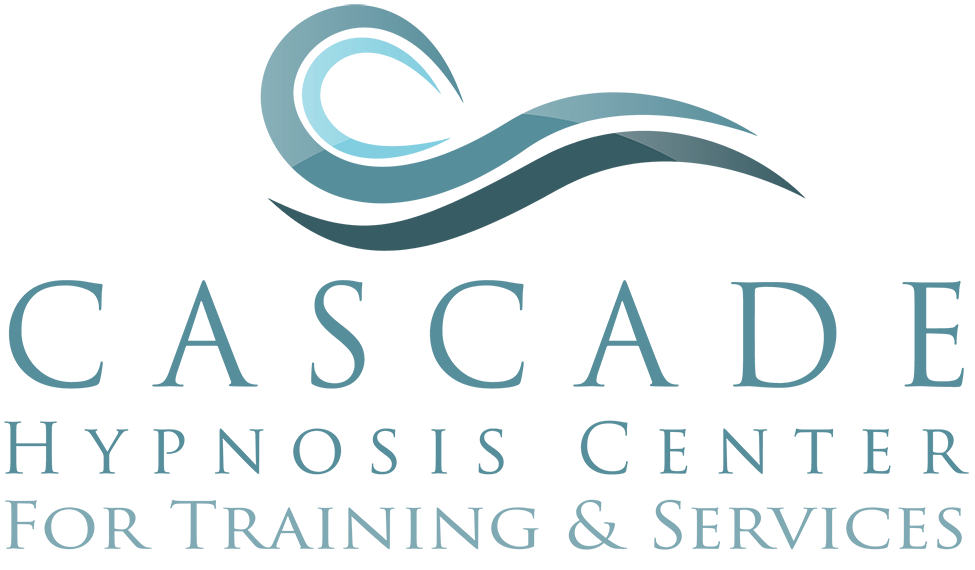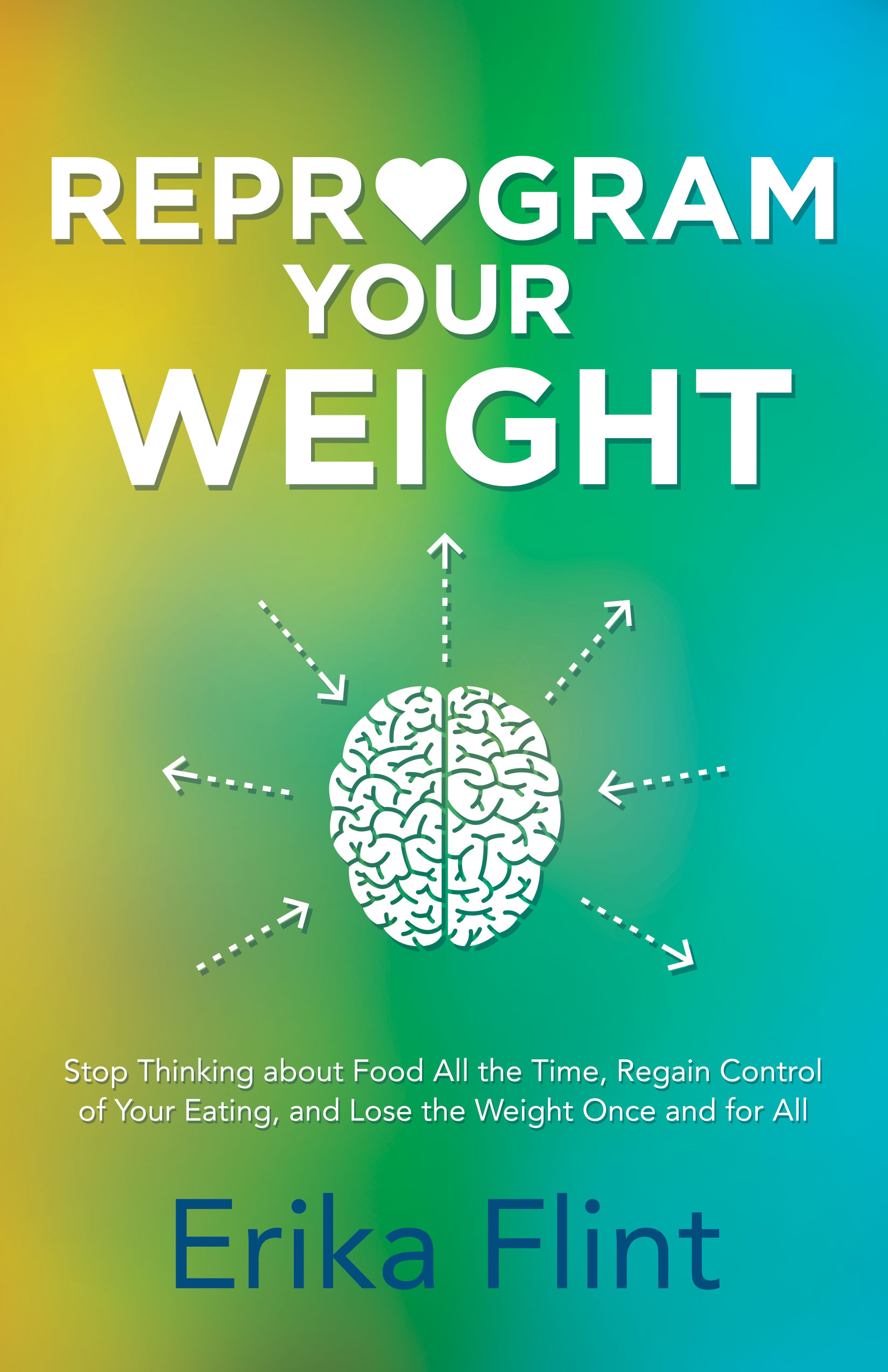Erika Flint on Portland's KATU-TV's AM Northwest with Helen Raptis on Hypnosis and Weight Loss
Learn how hypnosis helps reprogram how you think and feel to achieve lasting weight loss without the struggle. With Helen Raptis of KATU-TV's AM Northwest and featuring best-selling author and award-winning hypnotist, Erika Flint author of Reprogram Your Weight and Lighter.
Transcription of Interview
Helen: Thanks for watching AM Northwest this morning. If you're having trouble losing weight, it may be more about the thoughts in your mind rather than what you're putting in your mouth. Here to share how hypnosis can retrain your brain, we welcome the author of "Reprogram Your Weight," Erika Flint. Good to have you with us.
Erika: Thanks, Helen. It's great to be here today.
Helen: So, first of all, how did you get involved in hypnosis?
Erika: Yeah, that's a great question. I was a software engineer for many years, so I was programming computers for a really long time in corporate America, and I went through some personal challenges. I was just unfulfilled in my life, and I was wondering is this really all that there is out there.
You know, I have the job, the car, the house, so, you know, everything, and it was, like, "There's got to be more out there." And I had some real personal challenges, like a really low point in my life, and then I found hypnosis. So I started reaching out and finding, seeking things. I found hypnosis. It helped heal me, and that's when I really understood what hypnosis was really doing.
Helen: Right.
Erika: Yeah.
Helen: And you use hypnosis not just for weight, but for other things as well, clearly.
Erika: Absolutely. I do focus on helping people with weight. What I found in my practice is so many people were coming in and the help that I was giving them with hypnosis and weight loss was so effective. That's when I decided, "Oh, my gosh, I need to write a book about this and help even more people."
Helen: How does it work?
Erika: How does it work?
Helen: Yeah.
Erika: To help people reprogram how they think and feel, their relationship with food. So, so many people are eating not because they're hungry, but they're eating because they're stressed, they're eating because they're bored, they're eating for habitual reasons. You know, so this is, kind of, like the, you look around, you're sitting there watching television and you wonder who ate all the chips in the bag.
Helen: Right. Right. Well that's easy to do. Yeah.
Erika: Yeah, it is easy to do because it's mindless eating and it's a bad habit.
Helen: Right. It's the same with Halloween, I mean, the candy's there.
Erika: The candy's sitting there and you just walk by and you eat it, and you're like, "Oh, my gosh, I wasn't gonna do that." But you do because you're not thinking about it. But the other thing, really, that I've noticed that is the biggest one for me and the people that I really want to help are the emotional eaters. And so what happens is people wake up in the morning and they have really good intentions.
Helen: Sure.
Erika: So, you know, they're like, "Oh, my gosh, today's gonna be the day."
Helen: You're talking to me, you're talking to me.
Erika: Okay, okay. Today's gonna be the day. Right?
Helen: I'm listening, I'm listening.
Erika: And you put your gym clothes in the bag, you've got your healthy lunch.
Helen: I did that. Yeah.
Erika: Okay. And you're like, "Okay, honey, tonight, this is what we're gonna have for dinner. I'm gonna come home. We're gonna make it. We're gonna go on a walk." Right?
Helen: Right.
Erika: But then you have a stressful day, or you get news about a sick parent, or you get news about your kid who's struggling in school, or maybe your sister just had a really bad day. And all of a sudden, there, you find yourself instead of doing all of those things in the day, you find yourself at the drive-through on the way home.
And you wonder, "How did I get here again?" I had all these great plans all day. And then you start to wonder, "What is wrong with me?" And so many people get so frustrated because they have plans to do it. So they know in their head what they wanna do, but they never follow through.
And so, we have to get to that feeling place. I wanna help my clients feel in the moment. Okay. When they're having a stressful experience, that they can release that and get rid of it and not turn towards food.
Helen: Can you hypnotize yourself?
Erika: Yes.
Helen: Okay. And how do you do that?
Erika: Well, hypnosis is about focus. And so there's a lot of things that you could do to help you focus. I mean, there's recordings that you can use. But I use self-hypnosis all the time. I mean, I was using self-hypnosis, you know, earlier today to make sure I'm really focused to share with you and all your viewers.
Helen: Give me an example of what you would say to yourself if you're trying to lose weight and how you start your day. What would you tells your folks who are trying to lose weight?
Erika: I wanna make it really easy for people. So there's two things. The first thing is I only want you to eat when you're actually hungry.
Helen: Well, that's what I tell myself every morning.
Erika: I know. Okay. So this is how you do it. Wouldn't it be nice to have a really cool trick in order to actually be able to do that?
Helen: Right.
Erika: Okay. So this is what happens. You find yourself in your kitchen, right, and you're staring at the back of your fridge, and you're thinking, "Am I actually hungry?" Right. That's what I want you to ask yourself. So here's the trick. Ask yourself, "Would I eat broccoli? Would I eat broccoli?" Okay. So, now I like broccoli, but I'm not gonna stress eat broccoli. Okay. So if I would eat broccoli...
Helen: Does anyone stress eat broccoli?
Erika: I don't know. If somebody does stress eat broccoli I'd really like to know, but I never have. I do like broccoli, though. I will eat it, and it's one of the healthy vegetables that I go to.
All right. So if you would eat broccoli then, yes, you're hungry. Eat something healthy, but here's the trick...
Helen: Oh, I see. I gotcha.
Erika: If you're not, if you don't want to eat that broccoli, you have to do something else. And this is where most people break down. Most people, this whole process breaks down for people because what they do is they realize they're not hungry, but then they just go back to work. Or then they just go back to doing this stress thing that they had been doing the whole time.
So here's the trick. You see, your mind does not want that food. Your mind just wants to feel better, it just wants to feel better. And so in that moment when you realize, "Oh, my gosh, my brain is just asking me for a break."
So that's where I want you to do this translation. Your brain is asking you for a break as you're standing there staring at the back of the fridge, and you realize, "I'm not hungry. I wouldn't eat broccoli. I have to do something else." So then you go do something else. You go on a walk. You take a break.
Helen: Oh, something that you like to do.
Erika: Something that you like to do.
Helen: Something that gives your mind a break from the stress.
Erika: Yes, and then your brain is thinking, "Oh, thank goodness." Your brain's coming up for air, and your brain's like, "This is what I needed. I needed that break." There's some type of nervous overload that's transpiring because you've been focusing too hard, you've been working too hard, trying to answer 10 emails at once, or trying to juggle phone calls and everything. You give your brain a break.
Helen: Yeah.
Erika: Yeah.
Helen: Do you, in the morning, then have those folks kind of do a meditation where they sit and think about what they have for the day as far as their food goals?
Erika: Not really. Because I only want people to only eat when they're actually hungry. So the trick is have healthy food available in your house.
Helen: Okay. So let's say you're at work, and you know those people with the bowls of M&Ms; at their desk, right?
Erika: I know. Yeah.
Helen: And you go right by and you go, "Ooh," and you didn't even realize you did it.
Erika: That's right. So with hypnosis what would happen, and I have a cool story about this, because I had a client. She called me from home and she said, "Erika, I'm so excited. I can't wait to tell you this. I came all the way home from the grocery store and I didn't even buy the chips. As a matter of fact, I didn't even go down the chip aisle."
And so what was really cool for her is that she had been eating these chips for so long and for a while on other diet programs she could with her willpower, like "No, I'm not gonna eat the chips. I'm not gonna go down the aisle." This was different because with hypnosis she realized she didn't want those chips anymore. They represented something to her that has always been hurtful and painful.
So the chips are just off the table for her. They don't...she doesn't care about them anymore. It's like she could think about the chips like she might think about a rutabaga. She's just walking down, like walking down through the aisle and she didn't even see it their anymore. So with the M&Ms;, and if you're doing hypnosis, you wouldn't even notice them anymore.
Helen: Wow.
Erika: It's like they're not even there.
Helen: This is incredible information. The book again is titled "Reprogram Your Weight." Erika Flint, thank you so much.
Erika: Thank you so much.


